Iron - what it is, properties, needs, sources, deficiency
Iron is an important element that is responsible for many functions in our body.


Learn more about our editorial process
.

Learn more about our editorial process
.

Learn more about our editorial process
.

Learn more about our editorial process
.
Why you can trust us
Articles on Natu.Care are written based on scientific research, data from government websites and other reliable sources. The texts are written in cooperation with doctors, nutritionists and other health and beauty experts. Articles are reviewed before publication and during significant updates.
.Learn more about our editorial process
.Information about advertisements
Content on Natu.Care may contain links to products from the sale of which we may receive a commission. When creating content, we adhere to high editorial standards and take care to be objective about the products discussed. The presence of affiliate links is not dictated by our partners, and we select the products we review ourselves completely independently.
.Learn more about our terms and Conditions
.Do you like cereals? I hope so, because they provide us with a solid dose of valuable iron. In this article you will find the most important information about this mineral. What is iron? How does it work? What are its sources? Find the answers to these and other questions below!
Description of contents:
- What is iron .
- Iron - properties .
- Iron requirements .
- Sources of iron .
- Iron deficiency .
- Iron excess .
- Iron - supplementation .
- Iron during pregnancy .
- Iron and alcohol .
- Iron interactions with medications .
- Summary .
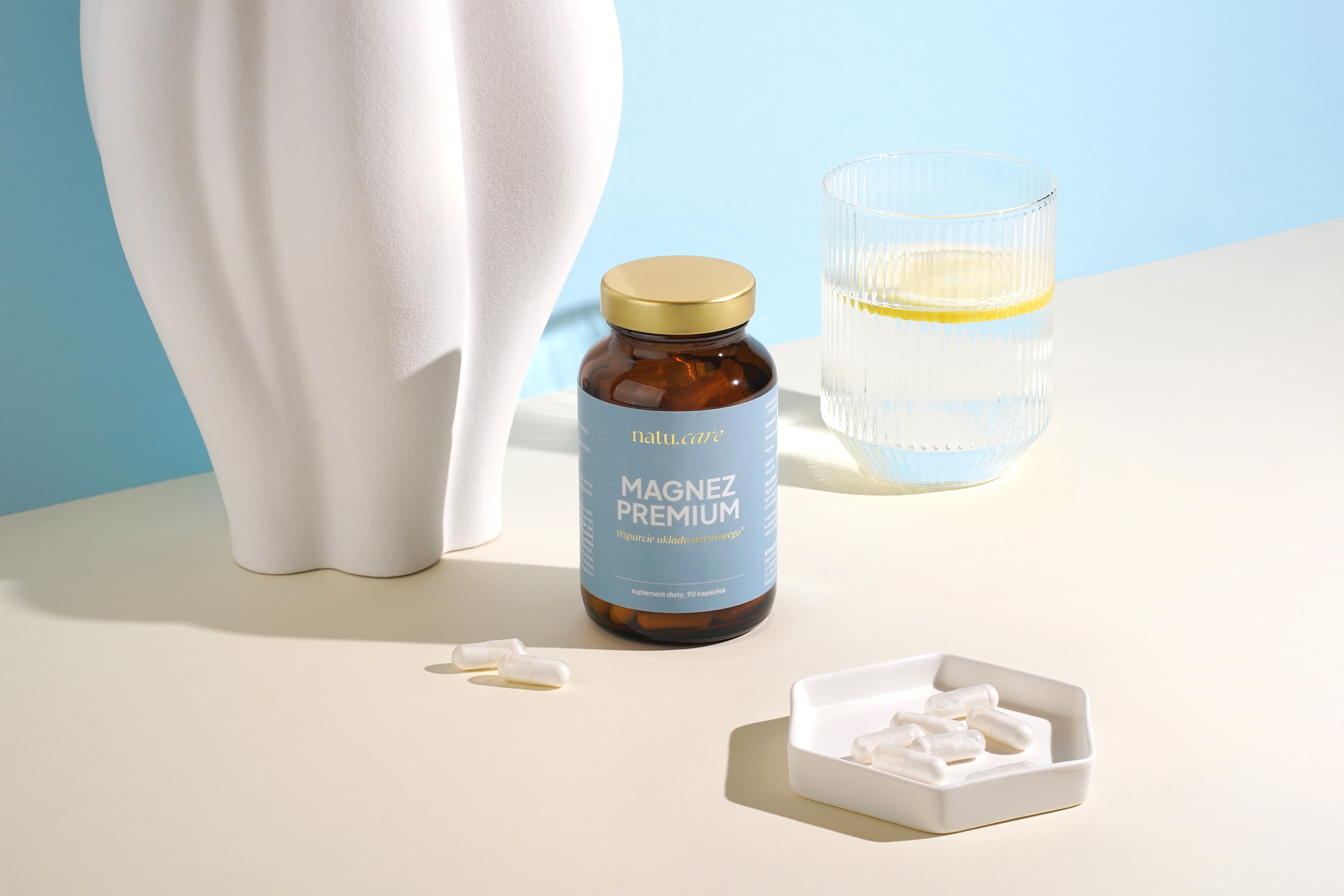
Sprawdź, co połączenie magnezu i witaminy B6 może zrobić dla Twojego zdrowia!
Natu.Care Magnez Premium + Witamina B6
Wesprzyj prawidłowe funkcjonowanie układu nerwowego, krwionośnego i mięśniowego dzięki synergicznemu działaniu magnezu i witaminy B6. Odkryj pełnię korzyści dla Twojego zdrowia każdego dnia!
Sprawdź cenę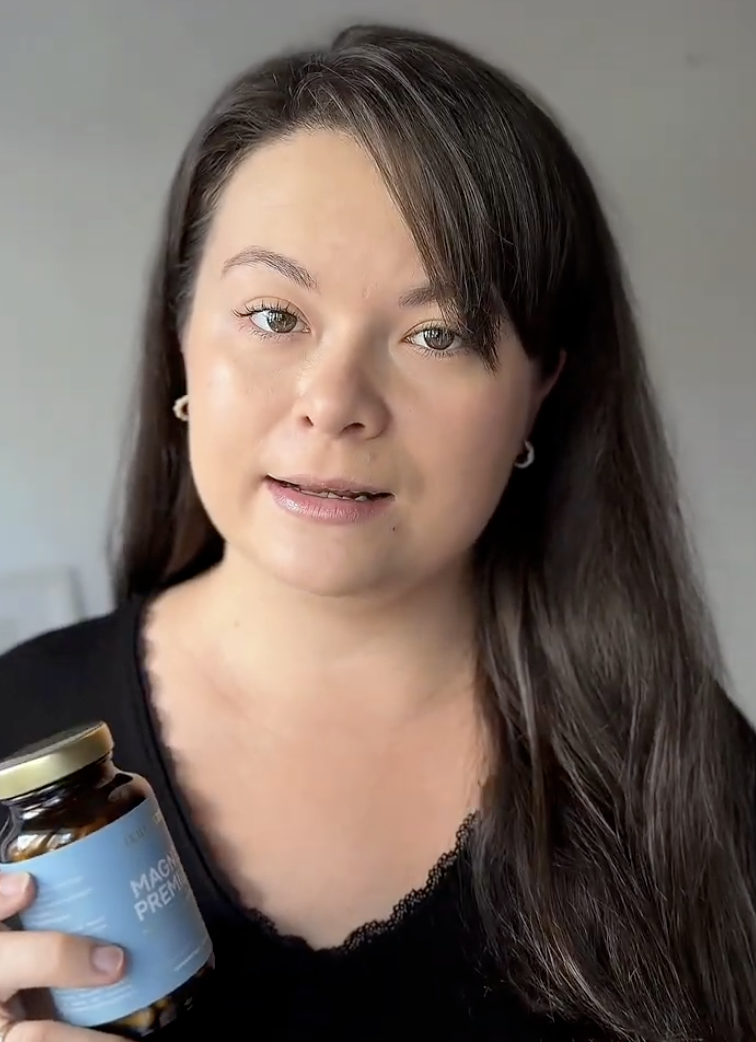
Magnez Premium przyjmuję już od 2 miesięcy i naprawdę czuję się znacznie lepiej. Mam więcej energii, przestałam mieć skurcze i nie denerwuję się już tak szybko, co w przypadku bycia mamą – bywa wyzwaniem!@DianaW.
See also:
- Zinc in tablets [properties and dosage + ranking] .
- Best magnesium [ranking + expert opinion] .
- Magnesium [properties + deficiency symptoms + best sources] .
- Potassium [deficiency + norm + what it's in]
- Zinc [properties + deficiency + excess] .
- Chromium [properties + use + supplementation] .
- Iodine [properties + dosage + deficiency symptoms] .
- MSM or organic sulfur [what it is and properties + dosage]
- Copper [properties, deficiency, excess] .
What is iron?
.
Iron is a mineral essential for the proper functioning of the bodyand. It is a component of haemoglobin, the protein responsible for transporting oxygen in our bodies. Iron affects neurological development, physical growth, synthesis of selected hormones and cell function .
What are the types of iron?
.
The iron we provide to the body with our diet comes in two formsand: haemic and non-haemic. The first type can be found in animal products such as poultry, meat and seafood. Non-heme iron, on the other hand, can be found in plant foods (nuts, seeds and pulses).
Iron from the plant sources
Aura Herbals Ferradrop
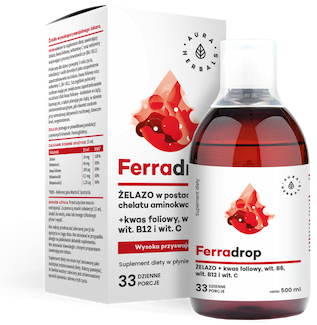
- Active ingredients: iron, vitamin C, vitamin B12, copper, vitamin B6, folic acid .
- Form: liquid .
- Dose: 15 ml per day .
- Sufficient for: 33 days .
Product description
A dietary supplement in the form of a convenient-to-drink liquid covers the daily requirement for iron, whichó is an extremely important mineral for the proper functioning of the organism. The formula is enriched with valuable ingredients: folic acid, vitamin B6, B12 and C.
.Pros and cons
A dietary supplement in the form of a convenient-to-drink liquid covers the daily requirement for iron, whichó is an extremely important mineral for the proper functioning of the organism. The formula is enriched with valuable ingredients: folic acid, vitamin B6, B12 and C.
.Additional information
A dietary supplement in the form of a convenient-to-drink liquid covers the daily requirement for iron, whichó is an extremely important mineral for the proper functioning of the organism. The formula is enriched with valuable ingredients: folic acid, vitamin B6, B12 and C.
.User review
A dietary supplement in the form of a convenient-to-drink liquid covers the daily requirement for iron, whichó is an extremely important mineral for the proper functioning of the organism. The formula is enriched with valuable ingredients: folic acid, vitamin B6, B12 and C.
.Dr Jacob's Liposomal iron
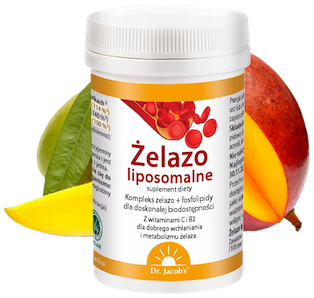
- Iron content: 8 mg .
- Additional active ingredients: vitamin C, vitamin B2, silicon
- Form: powder .
- Dose: 1 or 2 scoops daily .
- Sufficient for: 50 or 100 days .
Product description
Dr. Jacob's Liposomal Iron is a dietary supplement that
is ideal for people with iron deficiency. Thanks to its high bioavailability and bioavailability, it provides an effective dose of this important element.
The iron in the phospholipid complex is surrounded by liposomes, which&oac;re facilitate its absorption in the intestine. The product has a pleasant mango fruit flavour, which also makes it attractive for children.
Pros and cons
Dr. Jacob's Liposomal Iron is a dietary supplement that
is ideal for people with iron deficiency. Thanks to its high bioavailability and bioavailability, it provides an effective dose of this important element.
The iron in the phospholipid complex is surrounded by liposomes, which&oac;re facilitate its absorption in the intestine. The product has a pleasant mango fruit flavour, which also makes it attractive for children.
Additional information
Dr. Jacob's Liposomal Iron is a dietary supplement that
is ideal for people with iron deficiency. Thanks to its high bioavailability and bioavailability, it provides an effective dose of this important element.
The iron in the phospholipid complex is surrounded by liposomes, which&oac;re facilitate its absorption in the intestine. The product has a pleasant mango fruit flavour, which also makes it attractive for children.
User review
Dr. Jacob's Liposomal Iron is a dietary supplement that
is ideal for people with iron deficiency. Thanks to its high bioavailability and bioavailability, it provides an effective dose of this important element.
The iron in the phospholipid complex is surrounded by liposomes, which&oac;re facilitate its absorption in the intestine. The product has a pleasant mango fruit flavour, which also makes it attractive for children.
Iron - properties
.
Iron is essential for our body to function properly. What does it affect?
Alleviation of fatigue
.
Iron is necessary for the production of haemoglobin (a protein, in red blood cells, that is responsible for transporting oxygenand). Iron deficiency results in a lack of sufficient oxygen to be delivered to all areas of our body. This can result in feeling tired .
This problem often affects women during their childbearing years. Research suggests that iron supplementation is helpful in combating fatigue in menstruating womenand.
Fatigue can also be affected by inadequate concentrations of other ingredients. You can find out about them in the following articles:
Prevention of anaemia
.
One of the most common causes of anaemia is iron deficiency . Anaemia leads to fatigue, weakness or shortness of breath, and if untreated results in heart failure . Studies indicate that daily iron supplementation reduces the incidence of anaemia in menstruating womenand.
Improving sports performance
.
Iron deficiency is common in athletes, especially young female athletes who train in endurance sportsand. Some experts believe, that these individuals have a 70% greater need for iron. Lack of this mineral impairs sports performance .
Sports performance can result in joint problems. Collagen is partly responsible for their health. You can find out more about it in the following articles:
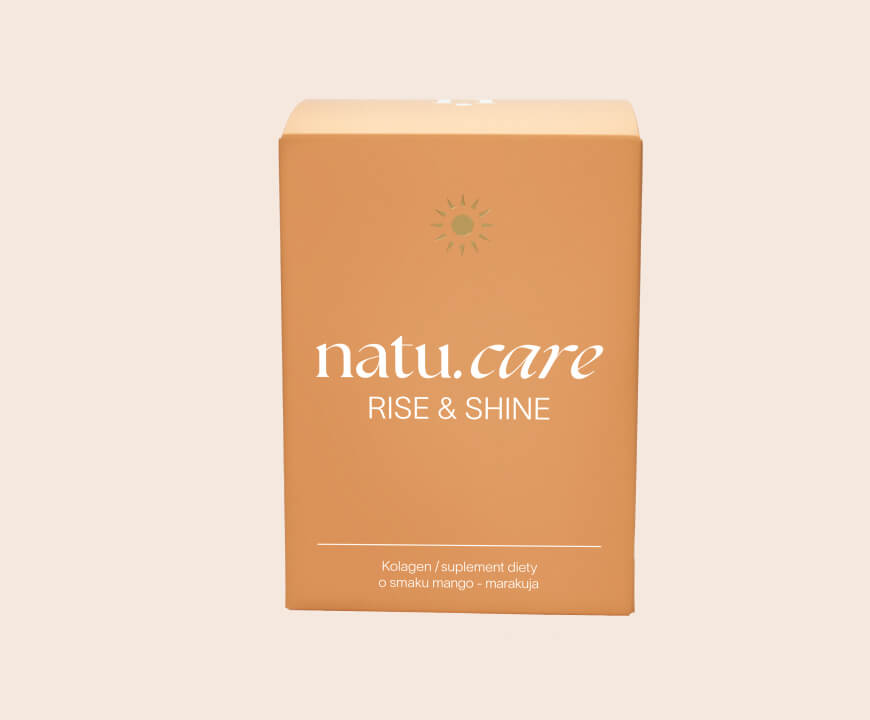
Rise&Shine: Collagen (5000 mg) in Mango-Maracuja flavour
Rise&Shine is collagen (5000 mg) in Mango-Maracuja flavour. Proven formulation, great bioavailability and refreshing taste.
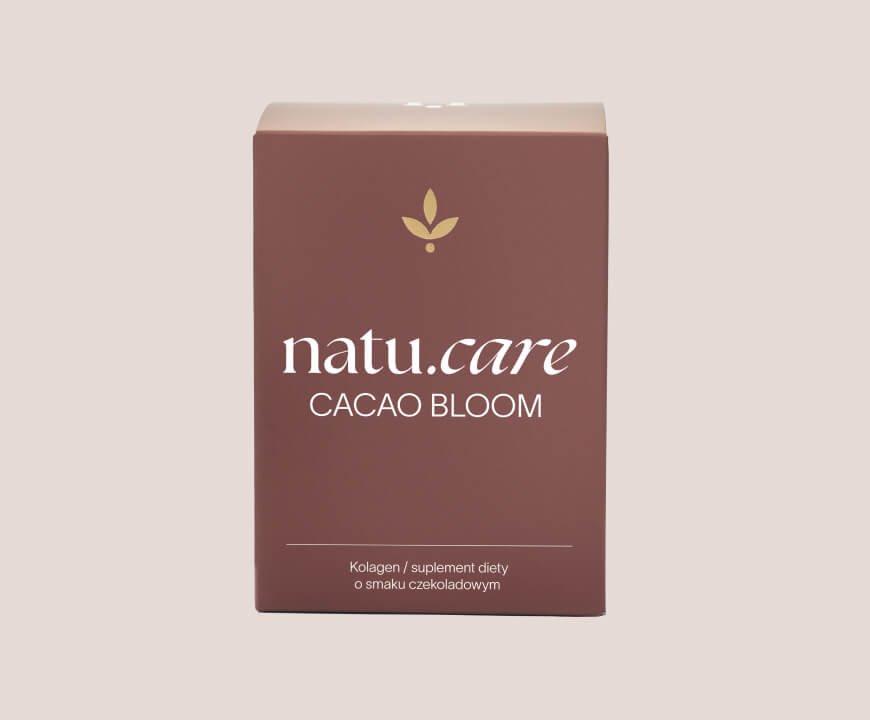
Cacao Bloom: premium collagen (5000 mg) with cocoa content
.Cacao Bloom is premium collagen (5000 mg) with Dutch cocoa. A researched formulation, convenient dosage and unforgettable taste.
Aiding the treatment of restless legs syndrome
.
Prestless legs syndrome is a condition that manifests as an uncontrollable need to move the lower limbs - usually in the evening or at night, which disrupts sound sleep. Research suggests that taking iron may support the treatment of restless legs syndrome.
Cognitive enhancement
.
Iron deficiency leads to problems with concentration, and impairs cognitive functionand. Supplementing the lack of this mineral can have an immediate effect. Studies show that taking iron positively affects memory, as well as cognitive and motor skills .
Cognitive function is also affected by:
.
How else does iron work?
.
- .
-
Influences the normal course of pregnancy (iron is responsible for supplying oxygen to the baby)and.
-
Positively influences the growth and development of childrenand.
The European Food Safety Authority reports that iron supports energy metabolism and also plays a key role in cell division.
The ninth B vitamin, also known as folic acid, is also important for normal pregnancy development.
Iron requirements
.
Iron requirements change with age. Check the table below to find out how much iron you need and how much your loved ones need.
|
Age |
Daily iron requirementand |
|
0-6 months |
0.3 mg |
|
7-11 months |
11 mg |
|
1-3 years |
7 mg |
|
4-9 years |
10 mg |
|
10-12 years old boys |
10 mg |
|
10-12 years old girls |
10(15) mg* |
|
13-18 years old boys . |
12 mg |
|
13-18 years old girls |
15 mg |
|
>19 years old men |
10 mg |
|
19-50 years old women |
18 mg |
|
>50 years women |
10 mg |
*Before the onset of menstruation (after the onset of menstruation)
.
The iron requirement increases significantly during pregnancy. Ladies expecting a baby should take as much as 27 mg of this mineral daily with their diet. In contrast, during breastfeeding, the requirement is lower at just 10 mg.
It is not necessary to take in iron during pregnancy.
Before starting iron supplementation during pregnancy, an examination should be carried out. The decision to include the supplement can only be made by your doctor..
 .
.
Dr. n. med. Witold Tomaszewski
.Maximum daily dose of iron
.
Iron overdose can lead to side effects, which is why an upper dose of intake of this mineral has been established. How much iron can we safely take in?"
.
|
Age . |
Upper limit of iron non-toxicityand |
|
0-12 months |
40 mg |
|
1-13 years |
40 mg |
|
14-18 years |
45 mg |
|
>19 years |
45 mg |
Warning box!
Remember that taking more iron than you need can lead to negative health effects. Exceeding your daily requirement should be consulted with your doctor.
Please note.
Sources of iron
.
Beef, poultry, beans and also dark chocolate contain the most iron. Interested in specific items? Check out the table with the 10 products richest in iron!
.
Iron deficiency
.
Iron deficiency is dangerous and leads to anaemiaand. It is common worldwide and occurs in many people. More often than not, iron deficiency is the cause of anaemia. What leads to it?
Causesand iron deficiency:
-
unbalanced diet,
. -
pregnancy,
.
-
excessive blood loss due to menstruation,
- .
-
impaired iron absorption,
- excessive loss of blood due to menstruation,
- excessive loss of blood due to menstruation,
- excessive loss of blood.
-
intrinsic bleeding,
- Intrinsic iron absorption disorders,
-
Genetic condition,
- .
-
endometriosis,
.
Symptoms
.
Iron deficiency-induced anaemia can go undiagnosed for a long time. As it worsens, however, our body will begin to rebel and we will experience certain symptoms.
Symptomsand of iron deficiency in the body:
-
weakness,
. -
discomfortand,
-
extreme fatigue,
. -
chest pains,
- excessive fatigue,
- extreme fatigue,
-
cold hands and feet,
- coldness.
-
pale skin,
- pale skin.
-
soulfulness,
soulfulness.
-
broken fingernails,
- .
How to quickly replenish iron in the body?
.
In most cases it is easy to get rid of anaemia caused by iron deficiency. Taking the right diet or supplementation will most often solve the problem. Untreated anaemia, however, can be very dangerous.
.
Effects
.
-
Complicationsand pregnancy.The high need for iron during pregnancy has its reasons. Deficiency of this mineral can lead to premature birth, intrauterine growth retardation, asphyxia (an oxygen-deficient state in the body), low birth weight or neonatal anaemia.
-
Acceleratedand or irregular heartbeat. Low oxygen in the body needs to be compensated for by a faster heartbeat. In the long term, this can lead to heart enlargement or heart failure.
-
Delayedand growth in young children. Untreated iron deficiency can delay growth and development in children and infants. Furthermore, a lack of this mineral in the body, increases susceptibility to infections.
When there is a severe iron deficiency, iron should be administered parenteral (other than orally)..
 .
.
Dr. n. med. Witold Tomaszewski
.Iron excess
.
Excess iron is just as dangerous as iron deficiency. What causes it?
Causes of excess iron:
.
-
Overdose. This occurs if we take too much iron along with supplements or medications.
-
Hemochromatosis. It is a disease that causes excessive iron absorptionand.
-
African iron overload. It is caused by excessive dietary iron intake .
What causes haemochromatosis?
.
One of the main causes of haemochromatosis is genetic. We then speak of so-called hereditary haemochromatosis. Its secondary variant, on the other hand, can be caused by selected medical treatments.
Hemochromatosis can be causedand:
-
anemia,
. -
long-term kidney dialysis,
.
-
hepatic diseasesand, such as steatosis or hepatitis C,
.
-
taking iron injections or tablets,
.
-
transfusions of blood,
- .
Symptoms
.
Hemochromatosis, the most common cause of excess iron, does not always produce specific symptoms. Some people may live with high iron concentrations and not even know it, while others will experience various manifestations of the excess.
Symptomsand excess iron in the body:
-
weakness,
. -
joint pains,
- pain.
-
fatigue,
- fatigue.
-
irregular heartbeat,
- confusion.
-
gastric pains,
- unresolved weight loss.
Effects
.
Excess iron can lead to numerous health problems. Most notably, it can result in arrhythmias and heart failure.
Negatively it also affects the liverand. It leads to its enlargement, failure in the course of cirrhosis and, in extreme cases, even cancer. Moreover, iron deficiency can also be the initiator of other diseases.
Other effectsand excess iron include:
-
diabetes,
. -
arthritis,
- diabetes,
-
erectile dysfunction,
- erectile dysfunction,
- erectile dysfunction.
-
premature menopause,
- premature menopause.
-
problems with the spleen, adrenal glands or thyroid gland,
.
-
grey skin,
What is the treatment of haemochromatosis?
The treatment of haemochromatosis primarily involves dietary changesand. Your specialist will certainly recommend that you stay away from products rich in this mineral. It's also worth limiting vitamin C, which increases iron absorption.
Another way to get rid of excess iron is therapeutic phlebotomy. This is a procedure that involves bleeding the blood, and therefore the iron it contains, from the patient's body. Iron concentration can also be lowered through the use of appropriate medication (oral or intravenous).
The concentration of iron in the body can be checked by a blood test. In turn, genetic tests, liver biopsy and MRI of selected organs will also be needed to make a diagnosis of haemochromatosis.
It is also possible to check the iron concentration in the body with a blood test.
Iron - supplementation
.
Iron is a mineral that is essential for our body to function properly. We should take it along with a balanced dietand, but sometimes it is necessary to support ourselves with supplements or medication. This is advisable in cases of iron deficiency or anaemia.
Indications for iron supplementation also include blood loss (internal bleeding, menstruation, medical procedures) and increased iron requirements (for example, during pregnancy).
Before starting iron supplementation, it is necessary to verify its serum concentration. It is also important to check its binding capacity and to determine ferritin. Iron can easily be overdosed..
 .
.
Dr. n. med. Witold Tomaszewski
.How to increase absorption
.
Researchand suggests that certain compounds, most notably vitamin C, increase iron absorption. If you want to improve the absorption of iron in the body, supplement with products rich in this vitamin.
How long can you supplement?
.
You should not supplement large amounts of iron for more than 6 monthsand. Exceptions to this are other recommendations from your doctor. Remember that excess iron can go undiscovered for a long time, so don't take a 'supplement'.
What time of day to take?
.
Iron is best absorbed if taken on an empty stomachand. It is a good idea to sip them with water or fruit juice (preferably with vitamin C) about one to two hours before a meal.
People with gastrointestinal (especially gastric) conditions, on the other hand, should supplement iron deficiencies with food or immediately after finishing a meal. In this way, they will avoid stomach problems.
Note!
.If you are ill or taking other remedies (medication, supplements), do not use iron on your own. Check with your doctor before starting supplementation. He or she is the only one who can give you the green light for a healthy and safe supplementation.
Side effects
.
Side effects can occur during iron supplementation. Which ones occur most frequently?
.
Side effectsand side effects of iron supplementation:
-
chest pains,
. -
shivers,
- shivers.
-
dizziness,
- dizziness.
-
accelerated heartbeat,
- dizziness,
- dizziness
-
fever,
- fever.
-
respiratory problems,
- a fever,
- a fever,
- a fever.
-
cramps,
.
In the long term, the side effects of iron supplementation can also lead to nausea, diarrhoea or constipation. If you experience these or the aforementioned symptoms, stop supplementation immediately and - if necessary - see your doctor.
If you are experiencing these or the aforementioned symptoms, stop supplementation immediately and - if necessary - see your doctor.
Iron in pregnancy
.
The amount of blood in a woman's body increases during pregnancyand, so she needs more iron for herself and the yet-to-be-born baby. Deficiency of this mineral can result in an increased risk of anaemia in the mother-to-be, as well as a low birth weight baby .
What's more, a lack of adequate iron concentrations during pregnancy can lead to abnormalities in the development of the fetal central nervous system. Expectant women should take 27 mgand of iron each day.
Breastfeeding women
.
Deficiency of iron during infancy can result in later social withdrawal, concentration problems, and general developmental delay in the child . Despite this, the need for iron decreases after pregnancy, as the woman no longer keeps as much blood in her body then. Breastfeeding women should take 10 mg of iron daily.
Iron and alcohol
.
People suffering from alcohol disease often have higher body iron stores than othersand. Research indicates, that consuming even small doses of alcoholic beverages can significantly increase the risk of excess iron.
It doesn't stop there, higher iron content in the liver also increases the likelihood of cirrhosis of this organ.
Interactions of iron with drugs
.
Iron can interact with certain medications. Find out if you are at risk.
Iron canand react with:
-
tetracycline,
. -
penicillin,
-
cyprofloxacin,
-
medicines for the prevention of epileptic seizures,
-
medicines for the prevention of epileptic seizures.
Note!
.Iron can interact with over 80 drugsand. If you are taking any medications (drugs, supplements, herbs), ask your doctor's opinion before starting supplementation.
See also:
.
- Thyroid tests [which ones to do + standards + results] .
- Blood tests [how often to perform + how to prepare] .
- Cortisol testing [norms and indications + where to perform]
- The liver [symptoms of diseases + how to care for it and what to avoid] .
- Fatty (greasy) liver [what it is + causes + symptoms] .
- Hypothyroidism [what it is + causes + symptoms] .
- Saturation [norms + test + symptoms of low saturation]
- Pulse oximeter [standards + results + which one to choose]
- How to take care of your mental health during a period of depressed mood]
Summary
.
From this article remember:
.- Iron is a mineral that is a component of haemoglobin.
- Iron is a mineral that is a component of haemoglobin.
- There are two types of iron: haemic and non-haemic.
- Iron is a mineral that is a component of haemoglobin.
- Iron prevents anaemia, fatigue and also improves sports performance. .
- Men should take 10 mg of iron daily. Women up to the age of 50 are advised to take 18 mg, and then reduce the dose to 10 mg.
- Iron is not recommended for women.
- Not more than 45 mg of iron should be taken per day. .
- The largest deposits of iron are found in liver, oysters or beef.
- Iron deficiency is not a problem.
- Iron deficiency is caused by an unbalanced diet, malabsorption or genetic conditions.
- Iron deficiency is caused by iron deficiency.
- Anemia caused by iron deficiency manifests as chills, weakness or headaches. .
- Iron deficiency is often caused by haemochromatosis - a condition that increases the absorption of this mineral.
- Hemochromatosis manifests itself in weakness and fatigue, and if left untreated leads to diabetes, arthritis or spleen problems.
- Vitamin C taken with iron increases the absorption of iron.
- Vitamin C can also increase the absorption of iron.
- Iron can react with a number of medications.
- Iron can be absorbed with iron.
- Adequate iron concentrations are crucial for a normal pregnancy. .
FAQ
.How to replenish iron in the body quickly
.Effective ways to replenish iron deficiencies are:
.- including sources of iron in the daily diet (e.g. red meat, seafood, dark green leafy vegetables, dark chocolate, whole grain products) and vitamin C, which improves absorption;
- safe iron supplementation. .
You will need to wait at least a few weeks for the effects.
.The quickest way to raise blood iron levels - especially in cases of severe anaemia - is an intravenous infusion along with vitamin C, but this treatment is decided by your doctor, based on the results of blood tests.
What leaches iron?
.There are several substances that can reduce the absorption of iron or, by binding it together, indirectly leach it from the body. The most important of these are:
- phytates - found in cereals, almonds, legumes and tofu, .
- polyphenols - found in soya, green tea, red grapes or beans, .
- calcium and phosphorus - reduce iron absorption from plants, .
- zinc - large amounts can inhibit iron absorption and assimilation, .
- carbs - bind iron and increase its excretion from the body; plenty of these in coffee, tea and red wine, .
- caffeine, .
- magnesium - do not supplement magnesium and iron at the same time.
Is iron deficiency dangerous?
.Yes. Iron is essential for the production of haemoglobin, which transports oxygen from the lungs to the tissues. Iron deficiency leads to anaemia, which results in oxygen deficiency and weakness throughout the body. It can cause fatigue, weakness, shortness of breath, headache, dizziness, cold extremities and other severe symptoms.
In children and pregnant women, iron deficiency can lead to irreversible developmental disorders. In severe cases, iron deficiency can lead to an increased risk of heart attack and damage to the brain and immune system.
How does iron affect hair?
.Iron deficiency in the body can lead to shrinkage of hair follicles and delay the production of new, healthy hair, as well as leading to weakness and hair loss. In addition, iron is important for the production of melanin, which is the pigment of hair and skin, so iron deficiency negatively affects the appearance and condition of hair.
.Does stress affect iron levels?
.Yes, prolonged stress can affect iron levels in the body. Stress hormones such as cortisol and adrenaline increase the excretion of iron from the body, which can lead to iron deficiency. In addition, stress can alter eating habits, and an unhealthy diet can lead to reduced iron intake and absorption. Stress can also lead to digestive diseases, which will negatively affect iron absorption.
Therefore, it is important to manage stress and maintain a healthy lifestyle, which includes a healthy diet and regular physical activity, to maintain healthy iron levels in the body.
See must-read: How to look after your health? 13+ tips from a doctor, nutritionist and psychologist
Why an iron-rich diet is important for girls and women?
.Firstly, women are at greater risk of iron deficiency due to blood loss during menstruation. Chronic iron deficiency can lead to anaemia, which manifests as fatigue, shortness of breath and weakness.
Secondly, pregnant women are advised to increase their iron intake to ensure an adequate amount for the baby's development. Iron deficiency in pregnancy can lead to preterm birth, low birth weight of the baby and various complications.
Iron deficiency in pregnancy can lead to preterm birth, low birth weight of the baby and various complications.
Can you take iron with vitamin B12?
.There is no contraindication to taking iron along with vitamin B12. Research suggests that both compounds are helpful in treating anaemia. An iron-rich diet is important for hair and skin health because iron is essential for the production of keratin, a protein found in hair, skin and nails.
.
Sources
.See all
.Alaunyte, I., Stojceska, V., & Plunkett, A. (2015). Iron and the female athlete: A review of dietary treatment methods for improving iron status and exercise performance. Journal of the International Society of Sports Nutrition, 12(1), 38. https://doi.org/10.1186/s12970-015-0099-2
Alleyne, M., Horne, M. K., & Miller, J. L. (2008). Individualized Treatment for Iron-deficiency Anemia in Adults. The American Journal of Medicine, 121(11), 943-948. https://doi.org/10.1016/j.amjmed.2008.07.012
Bruner, A. B., Joffe, A., Duggan, A. K., Casella, J. F., & Brandt, J. (1996). Randomised study of cognitive effects of iron supplementation in non-anaemic iron-deficient adolescent girls. The Lancet, 348(9033), 992-996. https://doi.org/10.1016/S0140-6736(96)02341-0
.Chatard, J.-C., Mujika, I., Guy, C., & Lacour, J.-R. (1999). Anaemia and Iron Deficiency in Athletes. Sports Medicine, 27(4), 229-240. https://doi.org/10.2165/00007256-199927040-00003
Clénin, G., Cordes, M., Huber, A., Schumacher, Y. O., Noack, P., Scales, J., & Kriemler, S. (2015). Iron deficiency in sports - definition, influence on performance and therapy. Swiss Medical Weekly, 145(4344), Article 4344. https://doi.org/10.4414/smw.2015.14196
Drakesmith, H., Pasricha, S.-R., Cabantchik, I., Hershko, C., Weiss, G., Girelli, D., Stoffel, N., Muckenthaler, M. U., Nemeth, E., Camaschella, C., Klenerman, P., & Zimmermann, M. B. (2021). Vaccine efficacy and iron deficiency: An intertwined pair? The Lancet Haematology, 8(9), e666-e669. https://doi.org/10.1016/S2352-3026(21)00201-5
.Intermittent iron supplementation for reducing anaemia and its associated impairments in adolescent and adult menstruating women-Fernández-Gaxiola, AC - 2019 | Cochrane Library. (n.d.). Retrieved March 16, 2023, from https://www.cochranelibrary.com/web/cochrane
Jáuregui-Lobera, I. (2014). Iron deficiency and cognitive functions. Neuropsychiatric Disease and Treatment, 10, 2087-2095. https://doi.org/10.2147/NDT.S72491
Low, M. S. Y., Speedy, J., Styles, C. E., De-Regil, L. M., & Pasricha, S.-R. (2016). Daily iron supplementation for improving anaemia, iron status and health in menstruating women. Cochrane Database of Systematic Reviews, 4. https://doi.org/10.1002/14651858.CD009747.pub2
Office of Dietary Supplements-Iron. (n.d.). Retrieved March 16, 2023, from https://ods.od.nih.gov/factsheets/Iron-HealthProfessional/
.
Editorials
Meet the team


Editor
Graduate of Journalism and Artes Liberales at the University of Warsaw. Since 2017, he has been working with the biggest portals in Poland and abroad as an editor. Previously worked for 3 years in one of the leading pharmaceutical companies - he knows the health and beauty industry inside out. In his free time, he most enjoys playing tennis or skiing.
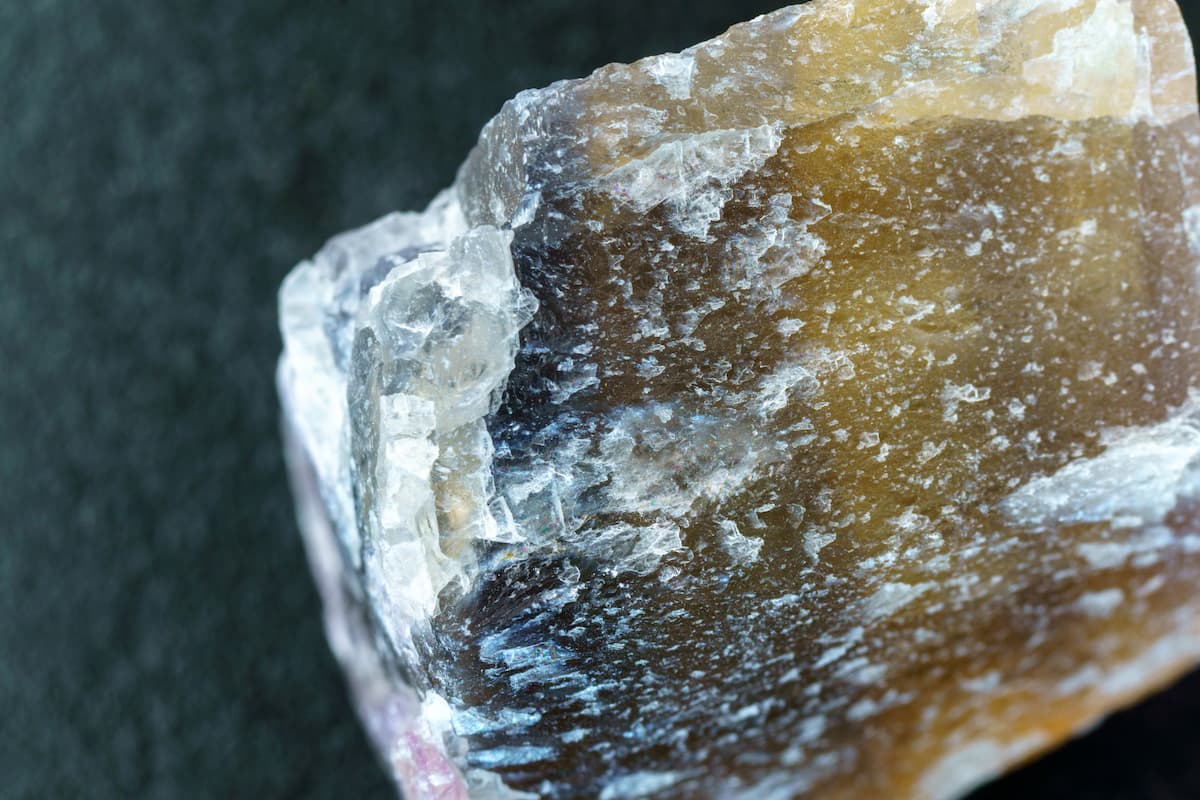
Fluoride is an essential mineral for the proper functioning of the body. How does it work and is it harmful? Check!
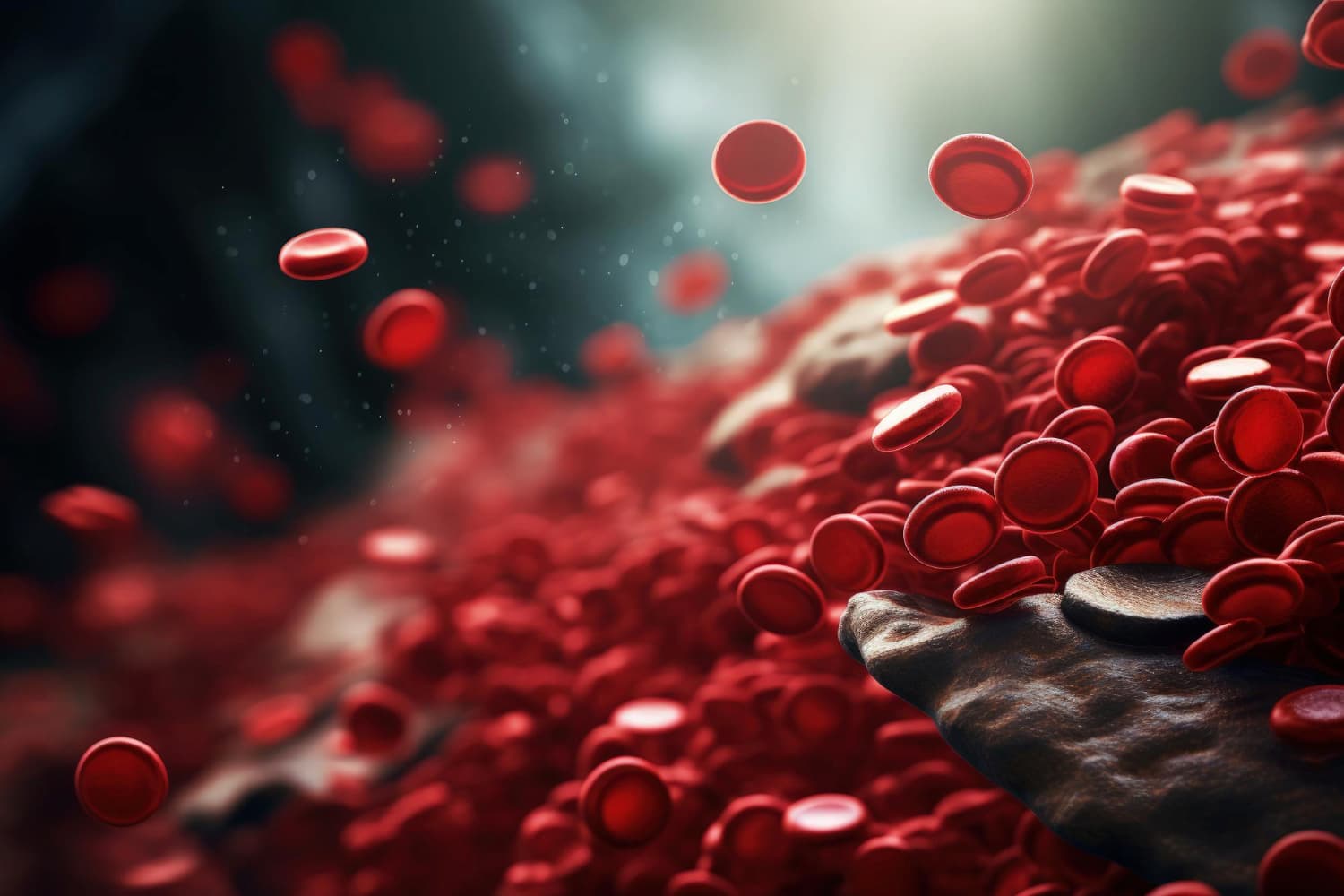
Iron deficiency is a dangerous condition leading to serious neurological and skin symptoms.
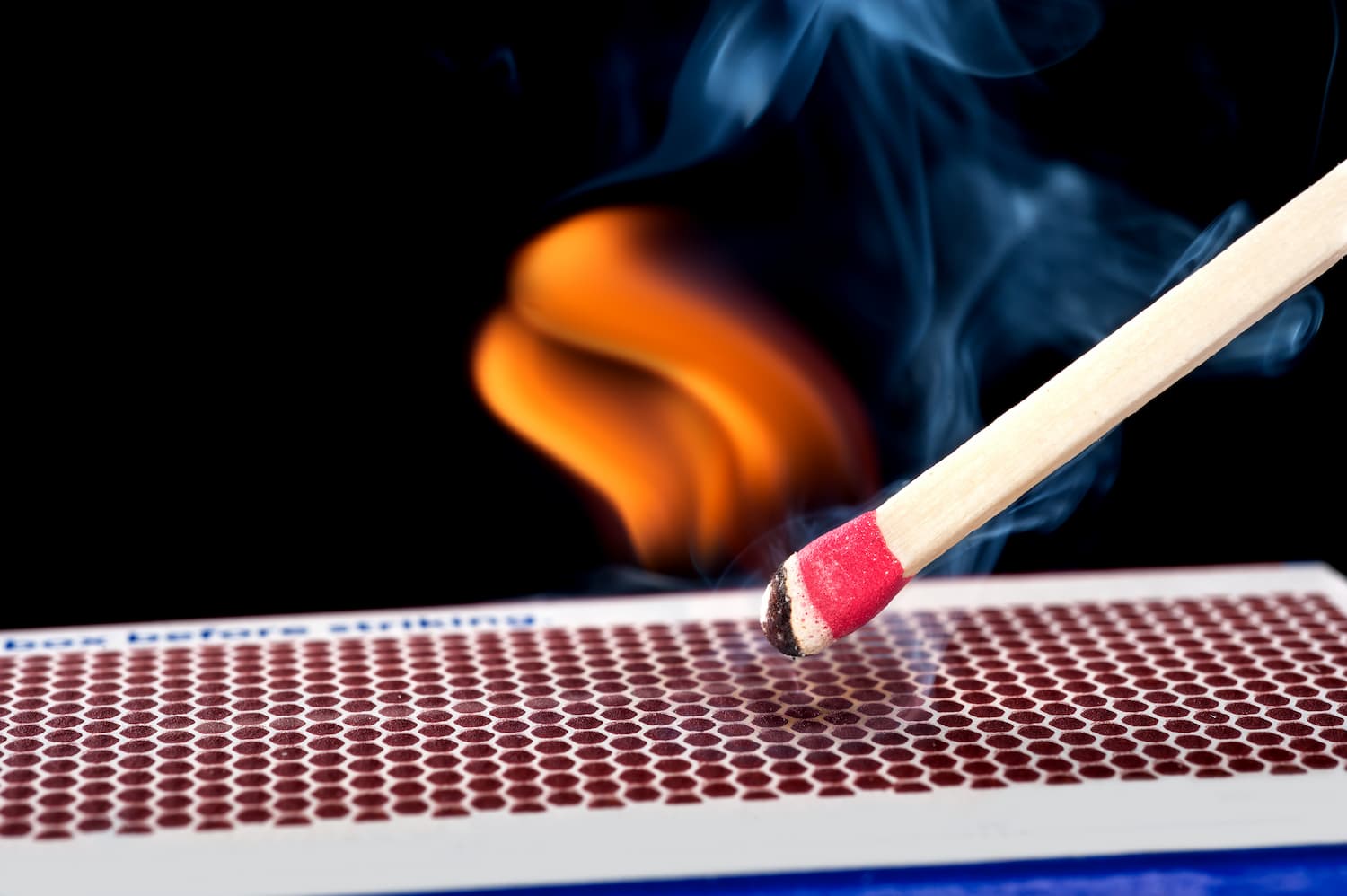
Phosphorus is a mineral element that supports bone health, nervous system function and also energy metabolism.
